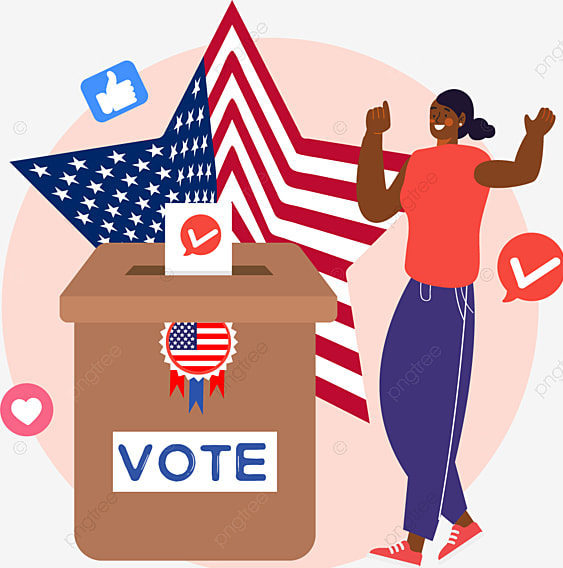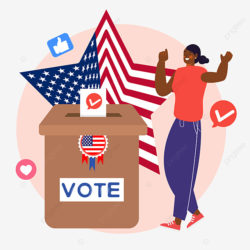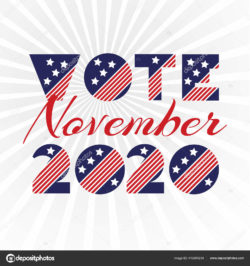The Fight for American Democracy in the Age of COVID-19
Written by Dr Sarah Marusek

In this post, Dr Sarah Marusek situates the issues arising from the recent presidential election in the United States in the historical struggle for rights in that country. She argues that the persistence of Trumpism cannot be viewed in isolation, especially because it is happening at a time when the call for universal healthcare has strengthened despite the legal manoeuvres aimed at truncating it.
WHILE the 2020 US presidential election was much closer than pollsters and mainstream media anticipated, the high number of mail-in ballots secured a late win for the Democratic candidate, Joe Biden, both in the popular vote and the all-important electoral college. The Republican incumbent Donald Trump, however, still claims that Biden’s victory is fraudulent, just another kind of fake news, after performing above and beyond most expectations, something academics should take note of. So far, Trump’s campaign has launched several lawsuits against states where  the race was the closest. Trump’s refusal to concede has also encouraged his supporters to stage armed protests.
the race was the closest. Trump’s refusal to concede has also encouraged his supporters to stage armed protests.
This is not the first time in recent history that the results of a US presidential election have been fiercely contested; there was also a standoff in 2000 between candidates Al Gore (Democrat) and George W. Bush (Republican). Back then, Gore secured the popular vote; however, the electoral college determines the winners and losers. The race was so tight in 2000 that the conflict revolved around the results in only one state—Florida, which has a hefty 25 electoral votes.
The electoral college relies largely on a winner take all system state by state (Maine and Nebraska are the notable exceptions), meaning that the difference between winning or losing just a handful of votes in any one state may determine the outcome of the entire election. This was the case in 2000, but the Supreme Court intervened to stop the recount and ultimately ruled Bush the winner. Gore had already ruined his chances by accepting a limited county-based recount, which favoured Bush, rather than a more inclusive total recount, which would have proved Gore the actual winner.
Why do Americans allow the antiquated electoral college, rather than the popular vote, to adjudicate presidential elections? Ron Elving explains on National Public Radio that the founding fathers did not exactly trust the electorate, instead preferring an elite group of electors, representing each state’s winning side, to make the ‘right’ choice for the populace. The electoral college also guarantees every state at least two electors based on representation in the Senate, on top of the number of electors based on the size of the population and representation in the House, and thus created more balance between the thirteen original colonies, protecting smaller states from being bullied by larger ones. However, as Erin Blackmore points out, the compromise also assuaged southern, slave-holding states, which insisted that slaves, ‘who were not considered citizens and would not be allowed to vote, be counted for the purpose of allocating electoral votes’. At the time, only White, male landowners had the right to vote.
Today, ostensibly, every American citizen aged 18 and older has a right to vote (committing certain felonies controversially takes this right away). However, the same racist and elite mentality arguably still holds true, with Trump’s effort to disenfranchise certain voters. This points to an unresolved colonial legacy, because abstract individual rights and freedoms were initially created by and only granted to White Europeans, while denied to non-White Europeans in the colonies. In the United States, non-White Americans (including former slaves) were only granted the right to vote under the 15th Amendment, passed in 1870.
This background history is of interest because the US Supreme Court will hear a case this week on the constitutionality of the Affordable Care Act, also known as Obamacare, which is the first truly inclusionary healthcare reform ‘since the [US] Congress created an agency to improve the health of freed slaves post-civil war, called the Freedmen’s Bureau,’ according to attorney Daniel Dawes. After Trump raced to fill a formerly liberal Supreme Court seat only a few weeks before the presidential election, an act denied to his Black Democrat predecessor, Barack Obama, many months before the 2016 election, the court is now stacked 6-3 against Obamacare’s radical approach to inclusivity. If the court rules against the act, it will potentially cost over 20 million Americans their right to affordable health insurance at the very same time the country is suffering from a deadly pandemic.
This helps me to understand why the healthcare system in my country remains unlike any other Western nation: we always had non-White Americans in our population. It makes sense that racist elites in pluralist societies would grant fewer collective rights to the populace than Europeans in all-White societies. It is maddening to hear Americans refer to welfare provisions like social security and Medicare as ‘entitlements,’ as if we do not pay for these old age services our entire working lives. Many readers will also be appalled to learn of the American phenomena known as food deserts – areas where people live more than one mile from a supermarket in urban or suburban areas and more than 10 miles in rural areas. Blacks and Hispanics are twice as likely to live in food deserts than Whites.

I believe the wave of anti-lockdown protests across the United States and other Western countries is a manifestation of the same racist legacy at play, even if these protests include non-White voices as well. The right to not wear a mask may, in fact, threaten the safety of others, but White supremacists do not care. I am not necessarily in full agreement with the lockdown measures, especially as I am precariously employed at the moment. But I still follow the rules to protect the safety of Britain’s ethnically diverse frontline workers. The fact that Nigel Farage not only campaigned for Trump but also recently changed his Brexit Party to the anti-lockdown Reform Party confirms, in the least, intersecting interests here.[1]
We are still uncertain about the social and economic costs of the continued lockdowns across Europe, but uncertainty also plagues the United States, even without the stricter COVID-19 measures. The same right-wing networks that staged armed protests against the lockdown last summer are now fighting for Trump and against the democratic will. But there is also a counterpoint to this story, as Democratic Representative Alexandria Ocasio-Cortez points out: ‘Every single candidate that co-sponsored Medicare for All [guaranteed single payer health insurance] in a swing district kept their seat.’ Whatever the court’s legal decision on Obamacare will be, the resilience of Trumpism amid the rise of the American left indicates that the battle over who has the right to be counted, and what being counted means, will continue to be contested in the United States for some time to come.
[1] That is not to say, in any way, that other Brexit interests do not lay elsewhere.
Top Photo credit: PNGTREE
2nd Photo credit: Depositphotos
Author
Dr Sarah Marusek
Research Fellow
